Supported by funding from the Open Rivers Programme, the Rewilding Apennines group have overseen the elimination of 5 obstacles on the Giovenco River. It is a crucial step ahead in restoring the pure dynamics of the river system, respiratory new life into the panorama and delivering advantages to native communities.
Bruno D’Amicis
Breaking obstacles
Funded by a 157,000-euro grant from the Open Rivers Programme, the Rewilding Apennines group have simply accomplished the elimination of 5 weirs on the Giovenco River. Weirs are barrier throughout rivers that alter the movement of water, change water ranges, and negatively impression river ecosystems. With the elimination of the obstacles, an 11-kilometre stretch of the Giovenco – which flows from south to north within the Abruzzo, Lazio and Molise Nationwide Park, within the coronary heart of the Central Apennines rewilding panorama in Italy – is flowing freely once more for the primary time in lots of many years.
The formidable “GIOV & GO – A free-flowing Giovenco” initiative is the primary of its type in the whole Apennine area. The pioneering intervention, involving quite a few excavators, noticed the elimination of the obstacles, which had been separated by 80-metre intervals, along with adjoining concrete riverbank partitions. By enabling the free movement of water and growing connectivity, these restoration efforts will considerably enhance habitat high quality, increase aquatic and riparian biodiversity, and improve the general well being of the river and surrounding panorama.
“Eradicating these weirs will free the river to restore itself,” says Fabien Quétier, Rewilding Europe’s Head of Landscapes. “This initiative exemplifies rewilding’s strategy to nature restoration, with comparatively small and focused interventions reminiscent of dam elimination unlocking nature’s big potential to revive itself.”
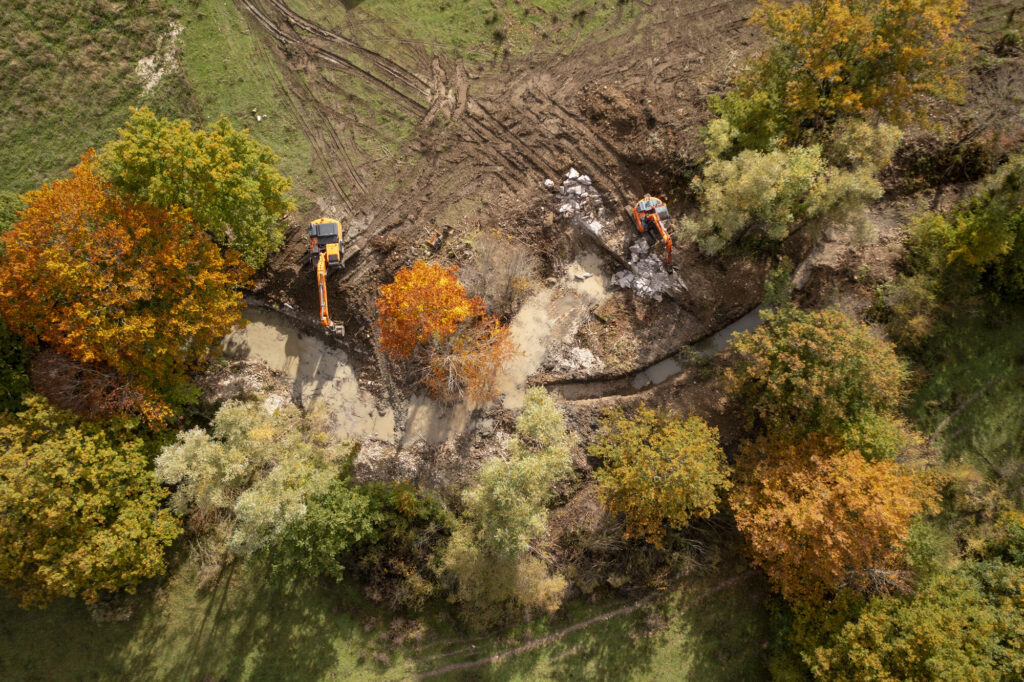
Bruno D’Amicis
Large-ranging advantages
Synthetic obstacles reminiscent of dams and weirs are thought-about one of many major threats to aquatic and riparian biodiversity on a worldwide scale. They considerably degrade river ecosystems by inflicting habitat loss and fragmentation, altering the distribution of sediments and vitamins, and concentrating pollution.
The elimination of the weirs on the Giovenco River will ship important ecological and socio-economic advantages. The free movement of water will allow the migration of protected and weak aquatic species, such because the white-clawed crayfish and Mediterranean trout. Riparian vegetation can even have the chance to reclaim habitat, delivering wider advantages to many different animal species, significantly the European otter, which is of course recolonising the realm. Different mammals, in addition to birds and bugs, can even profit from the restoration of pure habitats and a more healthy, extra linked ecosystem.
The elimination of the concrete partitions and weirs can even permit the Giovenco to renew its pure processes of abrasion and sedimentation, creating meanders and numerous habitats, and assist to reverse a development in localised erosion.
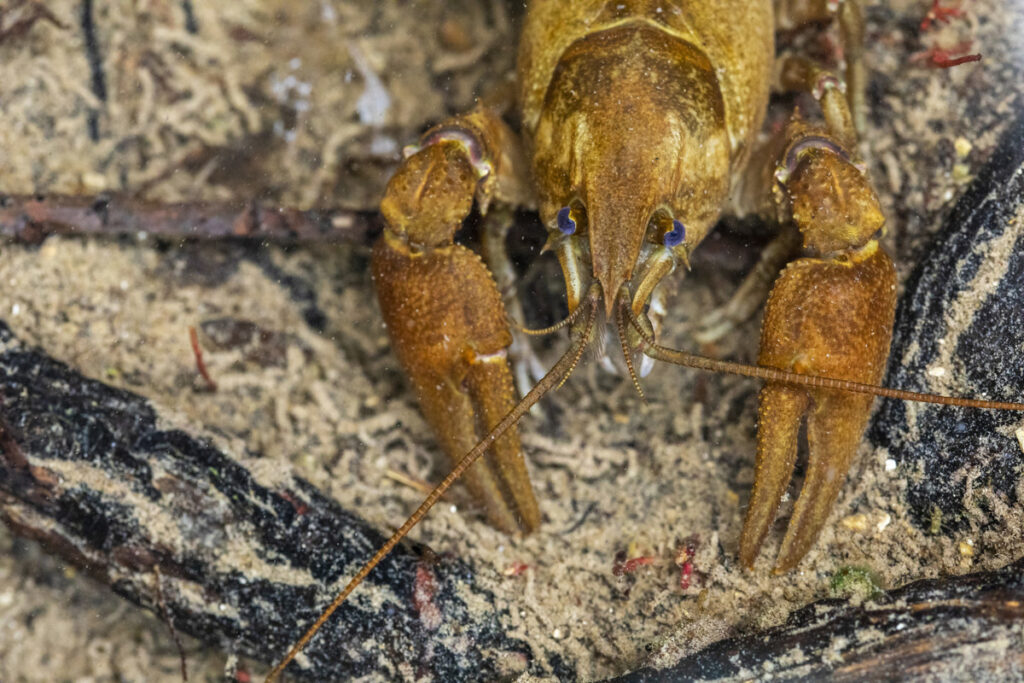
Bruno DAmicis
Group engagement and growth
By means of their restoration efforts on the Giovenco, the Rewilding Apennines group are additionally aiming to strengthen the connection between the river and native communities, highlighting the sweetness and significance of the realm. Instructional and awareness-raising actions will enhance understanding of the significance of interventions geared toward restoring rivers, and spotlight how communities can profit from them economically – for instance, by the event of nature-based tourism within the Giovenco Valley.
“We have now already held a few conferences in native communities to debate and promote river restoration,” says Angela Tavone, Rewilding Apennines Communications Supervisor. “We’re additionally going to organise a hike and speak to some college students within the coming months, and have interaction with different stakeholders linked with the panorama.”
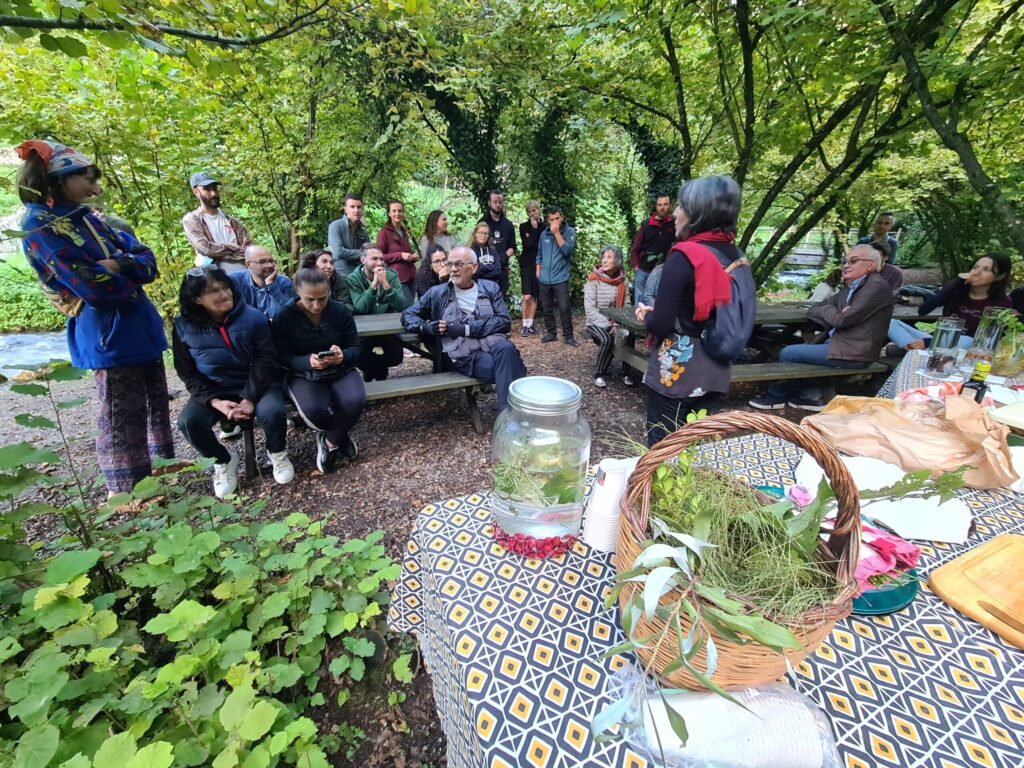
Scaling up
The elimination of obstacles on the Giovenco might act as a catalyst for additional barrier removals within the Central Apennines panorama. These might happen on each on the identical river – restoring pure movement situations alongside a 25-kilometre stretch – and in different poorly linked waterways, such because the Liri River. The group are making use of for an additional grant from the Open Rivers Programme for the elimination of a dam on the Liri.
“Rewilding Apennines is proud to be engaged on this restoration work on the Giovenco,” says Mario Cipollone, Rewilding Apennines Group Chief. “These efforts signify a primary step in direction of restoring threatened freshwater ecosystems throughout the Central Apennine area.”
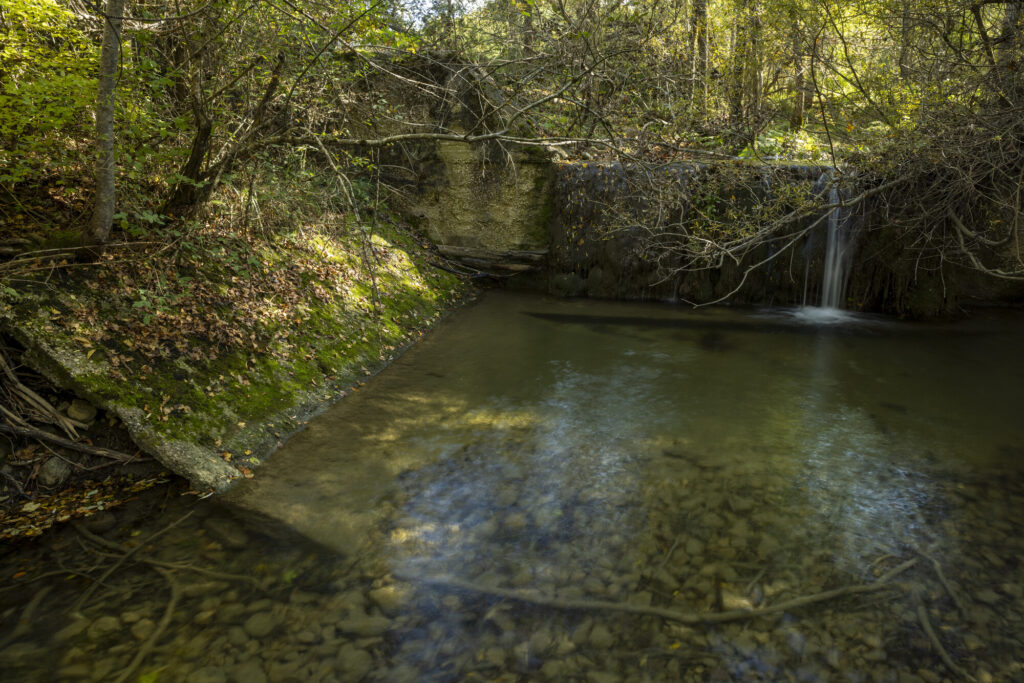
Bruno D’Amicis
The larger image
Rivers ship a variety of important advantages to folks and nature. With local weather change bringing new challenges, we urgently want a new relationship with water – accepting it into our landscapes once more, and rewilding it the place we will. This implies giving rivers the area and freedom to handle themselves, with dynamic, pure processes such because the free movement of water and flooding returning them to well being. That is what Rewilding Europe is doing in lots of its personal landscapes, by measures reminiscent of dam elimination.
Complementing the funding supplied by the Open Rivers Programme, monetary assist for the weir elimination on the Giovenco has been supplied by Rewilding Europe, which has been a part of the European motion for free-flowing rivers for a few years as a founding companion of Dam Removing Europe.
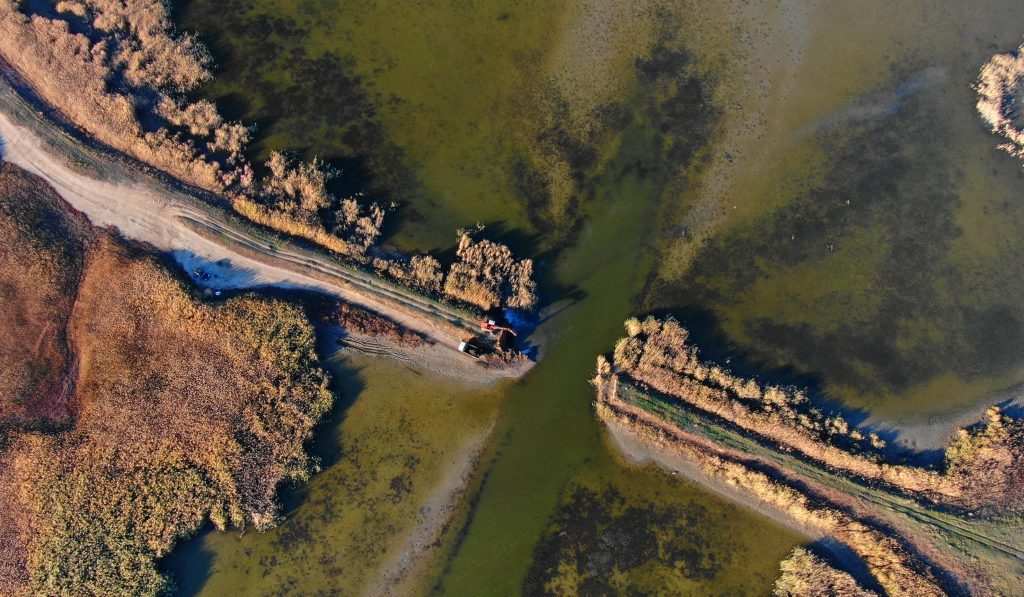
Maxim Yakovlev
Important collaboration
Key native establishments, such because the Abruzzo, Lazio and Molise Nationwide Park, and the Municipality of Bisegna, supported of the weir elimination on the Giovenco. The park authority, particularly, helped by finishing up promotional and awareness-raising actions within the Giovenco Valley.
To supervise the technical and design facet of the initiative, Rewilding Apennines engaged a group of technical and scientific consultants, together with environmental engineer Giandomenico Mercuri and naturalist Ileana Schipani, who had been concerned in each side of the work. These consultants ensured that short-term environmental impacts on the weir elimination website had been minimised, whereas restoration work can even be carried out to hurry up the restoration of nature across the obstacles which were eliminated.
Invaluable assist
Rewilding Europe’s work in our rewilding landscapes is supported by a variety of extremely valued companions. We might significantly wish to acknowledge these offering core funding – notably the Ecological Restoration Fund, the Dutch Postcode Lottery, WWF-Netherlands, and Arcadia. Their longstanding assist performs a crucial position in enabling us to ship and scale up rewilding impression.


















